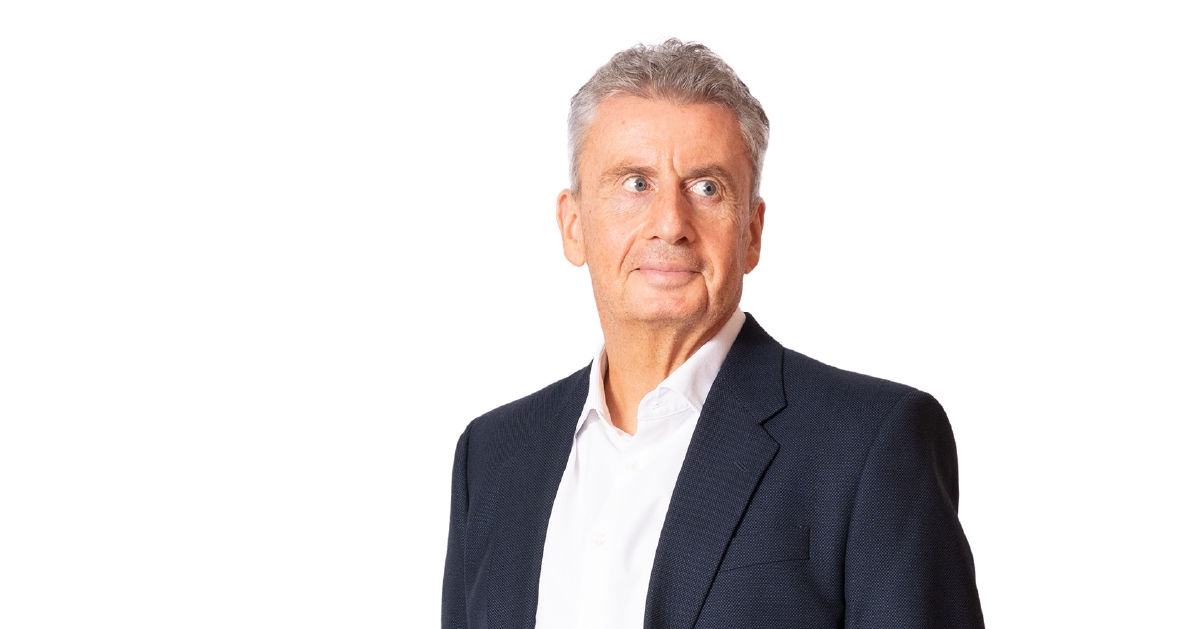10 Questions With RBC Portfolio Manager Philippe Langham
Where he sees opportunities and risks today.

Editor's Note: Ruth Saldanha, editorial manager at Morningstar Canada, interviewed Langham in August. The transcript has been edited for length and clarity.
Philippe Langham is a senior portfolio manager and head of emerging-markets equities at RBC Global Asset Management in the United Kingdom. He joined the firm in 2009 to establish and lead the team that manages RBC Emerging Markets Equity Fund. Langham has worked in the investment industry since 1992; he previously managed emerging-markets portfolios at Société Générale Asset Management in London, Credit Suisse in Zurich, and the Kuwait Investment Office in London. Langham is a graduate of the University of Manchester, where he earned a bachelor’s degree in economics. He is a chartered accountant.
1. How did you first become interested in investing?
I was very fortunate to get a job in investment management over 30 years ago without fully knowing what it entailed. I realized very soon after starting the role that it was the perfect career for me.
2. When did you start incorporating environmental, social, and governance analysis into your portfolios?
ESG has been an important part of our philosophy and process since the inception of the RBC EM Equity strategy in 2009. I am pleased to see that ESG has gained much wider recognition in recent years.
3. How important are ESG factors to your process?
ESG is a crucial factor, as we believe that companies that pay attention to ESG considerations are more likely to be able to sustain higher returns and to be long-term winners. These companies tend to have a strong culture, to avoid risks, to think long term, and to have engaged employees.
4. How are international valuations for 2022?
Emerging-markets equities are trading below their long-term average in terms of a range of valuation metrics and at a 20-year-high discount relative to developed markets.
5. There is a lot of talk of a recession right now. What do you think?
Slower growth ahead seems likely, and in this environment, it is key to focus on those areas where there is growth. Areas that we are focused on are the emerging-markets consumer, financialization, health and wellness, digitalization, and green infrastructure.
6. What areas are most at risk, and are there regions or sectors you are using as a hedge against a potential recession?
Emerging markets will certainly not be immune to a global slowdown, but within the asset class, there will always be some countries, sectors, and stocks where we believe growth can be positive even during a slowdown, such as green infrastructure and health and wellness.
7. Is there a global market you’d single out as a good opportunity?
We have always liked India as a market due to very high-quality corporates and robust growth driven by low penetration. Added benefits now include a reform-minded government and strong signs that the country may be embarking on a new capital-spending cycle.
8. Any markets investors should avoid?
This is a question that every investment manager has to assess based on their own risk analysis. In our case, we have had no exposure to Russia for several years and plan to continue to avoid this market due to elevated political risk.
9. Do you have a favorite charity you wish more people knew about?
Our team supports a little-known charity called La Vida, which supports projects in health and education in Latin America. It is run on a purely voluntary basis.
10. What book are you reading now?
Thinking in Bets by Annie Duke, a professional poker player. The book is essentially about lessons learned from hours of decision-making under pressure.
This article was first published in the Q4 2022 issue of Morningstar magazine.
The author or authors do not own shares in any securities mentioned in this article. Find out about Morningstar’s editorial policies.


:quality(80)/cloudfront-us-east-1.images.arcpublishing.com/morningstar/GQNJPRNPINBIJGIQBSKECS3VNQ.jpg)
:quality(80)/cloudfront-us-east-1.images.arcpublishing.com/morningstar/KWYKRGOPCBCE3PJQ5D4VRUVZNM.jpg)
:quality(80)/cloudfront-us-east-1.images.arcpublishing.com/morningstar/LKUJXAAZJVHY3LSXHSP7YQRHDM.jpg)